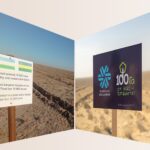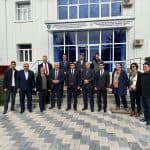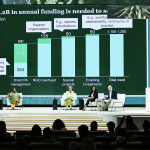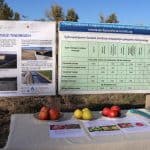On September 24, 2024, the Presidential Resolution “On priority measures to combat dust storms and improve air quality” was adopted. According to the document, the National Program to Combat Dust Storms and Mitigate Their Negative Consequences in the Republic of Uzbekistan for 2024-2030 was approved.
The main areas of the program are: – improving the system of forecasting and monitoring dust storms, as well as creating an early warning system for the population about them in 2025-2028; – introducing advanced technologies to prevent and mitigate the effects of dust and sand storms, expanding green cover in the regions; – eliminating the spread of dust and sand particles in the air at construction sites; – conducting an inventory, geobotanical survey and compiling geobotanical maps of 30 percent of existing pastures by 2026, 60 percent – by 2028 and in full – by 2030; – strengthening international cooperation in the field of combating dust storms; – achieving a reduction in the rate of occurrence of strong dust storms by 50 percent compared to the current state by 2028; – strengthening environmental education in the field of combating dust storms.
According to the document, from January 1, 2025, automated small stations for background monitoring will be installed in 12 districts of Tashkent. From January 1, 2026, in order to provide reliable information on the quality of atmospheric air to the population, the level of air pollution and hydrometeorological data will be announced on special monitors and boards installed in the city of Tashkent.
In addition, conceptual foundations for the organization of the Central Asian Green Fund and the Center for Climate Issues of Central Asia will be developed.
Also according to the document:
– From 2030, the use of fuel oil as a fuel by heat and energy production enterprises located in the city of Tashkent and in the adjacent territories in the Tashkent region is prohibited. Moreover, starting from the autumn-winter season of 2025, the use of fuel oil as a reserve fuel is established only on the basis of a resolution of the Cabinet of Ministers adopted annually on the eve of the autumn-winter season, based on weather and technological conditions. – in order to reduce the negative impact on the environment of coal fuel used in more than 1.2 greenhouses located in areas adjacent to the city of Tashkent, dust collecting and gas cleaning equipment will be installed, and a mechanism for allocating subsidies to greenhouse farms for the installation of this equipment will be introduced; – in 2025-2030, “green belts” and “green gardens” will be created on a land area of 441 hectares in Tashkent and in the adjacent territories in the Tashkent region; – from 2028, the use and sale of motor fuel, the environmental category of which is below the Euro-4 standard, will be gradually limited. The program also provides for:
– creation of vehicle-free zones on streets with Tashkent landmarks; — ensuring comprehensive priority of public transport under the slogan “City for pedestrians”; — development of environmental master plans for the city of Tashkent and each district; — organization of work on installation of modern dust-collecting and gas-cleaning equipment and replacement of outdated equipment at industrial enterprises; — creation of an artificial reservoir in order to ensure a moderate microclimate, a positive impact on the quality of atmospheric air; — development of methodological manuals on mitigation of risks associated with atmospheric air and their negative consequences, as well as preparation of programs and social videos aimed at reducing harmful impacts.
Ministry of Ecology, Environmental Protection and Climate Change of the Republic of Uzbekistan

























